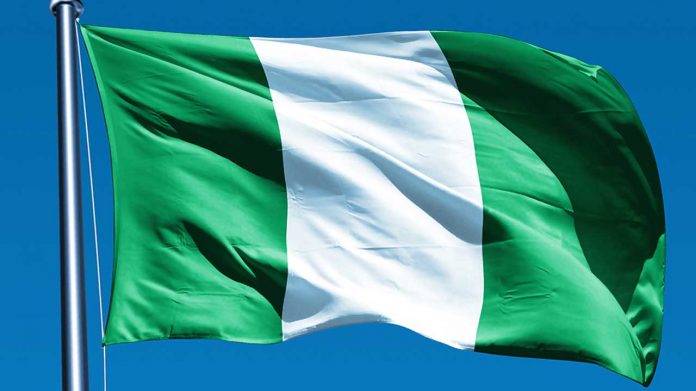
“Each one of us, and indeed all those who aspire to national leadership must bring their own visions, views and styles to the business of reforming Nigeria, and the search for solutions”
– Gen. Ibrahim Babangida
Years ago, psychologist discovered that there are two routes to achievements: conformity and originality. Conformity means following the crowd down conventional paths and maintaining the status quo.
Originality is taking the road less traveled championing a set of novel ideas that goes against the grain but ultimately makes things better. If we immersed the Nigeria national psyche into Grant’s non-conformist approach of changing the world, we will come out without bruises and apologia to the fate guiding our compassionate commitment towards the search and reconfirmation of our true national identity.
Hobbes, Locke and Rousseau has amplified our ideological familiarity with what has become the social contract narrative, which in simple terms, says, government exists only by the consent of the people in order to protect basic rights and promote the common good of society. The premise and genre of this philosophy is fashioned into a unified accent that will properly fit into the culture and political civilization of any social establishment.
Nigeria shouldn’t be governed under fear and ethic trepidations. Government policies shouldn’t stir feelings or perceptions of marginalisation, political party formation shouldn’t be borne out of religious and tribal affiliation, federalism should be seen as a platter where the construction of an inclusive development takes place. Our National and State Assemblies should reflect our indivisibility as a democratic republic binded by faith, our schools should be Hallmark of responsible leadership, because our progress as a nation cannot be far away from our progress in education.
Our foreign policy should reflect the strength of our political economy and ability to define our national interest in a world that is irrefutably wearing the fez hat of globalisation.
Very soon, President Tinubu will be launching the National Value Charter (NVC). A document that states out clearly, what should be the role and responsibilities of the Nigerian citizen to his/her country.
The Honorable Minister of Information National Orientation, Alh. Mohammed Idris has championed this onerous course in order to reset the DNA of our national identity- as a true federal republic. The National Values Charter according to the Minister, also takes into full account the fact that we are a youth-centric and technology-driven world.
On account of these, we are determined to ensure that the young people of Nigeria own this social contract, and are allowed to take the lead in using it to build, in concert with older generations, a better country, and a better world. The Charter goes both ways, expectations of the nation to the citizen and expectations of the citizen to the nation.
Nigeria will not fail under President Tinubu and beyond, because the people have seen and agreed almost totally with the wealth, power and resilience Nigeria commands as a nation. $33.23 Billion external reserve in Q3 of 2023. $1.275 trillion GDP by Purchasing Power Parity (PPP), $489.80 Billion by Nominal GDP. One of the world’s largest oil producers and the true giant leader of Africa.
During the 2023 Nigeria Economic Summit Group (NESG) event, President Ahmed Bola Tinubu said this to private and public sector leaders present, “Distinguished audience, a one trillion dollar Nigerian economy is possible by 2026, and a three trillion dollar economy is possible within this decade, “I am confident that by working closely with all of you in the private sector, financing our three trillion dollar national infrastructure stock can be achieved in 10 years and not in 300 years…Building megacities in every geopolitical zone of the size and scale of Lagos must not take us another six decades. We can do it in one decade. A fully networked and connected Nigeria by rail, gas, fiber optics and road network can be constructed in less than 20 years.”
The Tinubu Renewed Hope Agenda is very aware of the challenges before us as a nation. Insecurity, unemployment, hike in prices of commodities and services from food, petrol, energy bills. Another price volatility that recently took the center stage of socio-economic discourse include; school fees, transport fares, and the inability of salaries and wages to cater and sustain living at the basic level.
These socio-economic tough times are as a result of the ongoing progressive economic reconstruction by the apex government.
The Central Bank of Nigeria (CBN) Governor, Mr. Olayemi Cardosso, during his remark at the launching of NESG January 2024 Macro-economic Outlook, gave some huge hope. He said, “I want to assure you that we are now at a turning point, and the bold reforms being undertaken across different segments of the economy, while initially challenging, are ultimately directed towards addressing these challenges in a sustainable manner. The economic stabilisation or reduction in fuel cost is poised to have far-reaching implications across various sectors contributing significantly to overall economic efficiency and resilience.”
As we successfully move towards stabilisation of our exchange rate, boost our foreign reserves and cut significantly the price of petrol, finance inclusive development across the six geopolitical zones, I want to join the Minister of Information & National Orientation by saying:
Welcome to a new Nigeria …!!!
Saidu Ahmed is a Special Assistant, Research & Strategy to the Honorable Minister of Information & National Orientation.
The views expressed in this article are the author’s own and do not necessarily reflect the editorial policy of Sky Daily



































